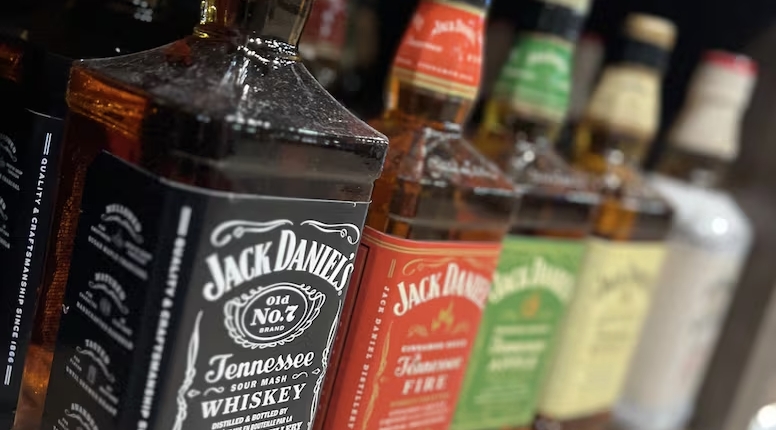U.S. Tariff Threats Spark Calls to Dismantle Canada’s Interprovincial Alcohol Trade Barriers
Noah Chen
1/31/20254 min read


As British Columbia and Ontario threaten to block U.S. alcohol imports in retaliation for potential American tariffs, Canadian liquor producers are calling for an overhaul of interprovincial trade rules that they say stifle domestic sales.
Both B.C. Premier David Eby and Ontario Premier Doug Ford have indicated they are prepared to stop American-made alcohol at the border if the Trump administration proceeds with its plan to impose a 25% tariff on Canadian goods as early as Saturday.
“If they are not going to abide by our trade agreements, then neither are we,” Eby said last week.
While this strong stance is meant to send a message to Washington, it has also reignited frustration over long-standing barriers preventing Canadian-made wines, spirits, and beers from being easily sold across provincial borders.
A Fractured Domestic Market
Industry leaders argue that outdated regulations make it harder to move alcohol within Canada than to import it from other countries.
“Sometimes it’s harder to move stuff across the provincial border than it is to ship stuff outside of Canada or bring stuff into Canada—which is ridiculous,” said Tyler Dyck, CEO of Okanagan Spirits and president of both the Craft Distillers Guild of B.C. and the Canadian Craft Distillers Alliance.
Dyck and other industry advocates, including Wine Growers B.C., see the current trade dispute as an opportunity to push for long-overdue reforms.
“Maybe this is the time. This is the catalyst for us to look at interprovincial trade,” Dyck said.
Complex Barriers to Selling Across Provinces
The lack of Nova Scotian wine in B.C. or B.C. gin in Quebec isn’t just a coincidence—it’s the result of restrictive provincial policies.
“We just don’t know how to trade among ourselves,” said Sylvain Charlebois, a Dalhousie University professor specializing in food distribution.
Each province and territory enforces its own set of regulations on shipping, storage, labeling, and sales, making interprovincial alcohol trade cumbersome. Charlebois notes that Ontario and Quebec have particularly restrictive rules designed to protect their near-monopolies on alcohol distribution.
“There are barriers. Some provinces have actually signed on to open up their markets,” he said, citing Nova Scotia, Saskatchewan, and a recent pilot program between Alberta and B.C. as examples. “But Central Canada is not necessarily keen on sharing their customers.”
Because of these hurdles, some Canadian alcohol vendors prefer to deal with U.S. suppliers, where there are fewer regulations, lower costs, and more product variety.
“A lot of companies actually prefer dealing with the U.S.,” Charlebois added.
The Cost of Canadian Protectionism
For distillers like Dyck, it is frustrating to see liquor store shelves filled with international brands while Canadian-made alternatives struggle to compete.
“Why does every single restaurant have Jack Daniel’s? It doesn’t power Canada’s economy,” he said.
Darryl Lamb, brand manager for Legacy Liquor Store—B.C.’s largest private liquor store—agrees, arguing that provincial rules give foreign products an unfair advantage over Canadian-made alcohol.
“Politicians say we need to buy Canadian, but they need to update and repair the regulations to allow Canadian products to have the same privileges as American, European, Australian, and South American products,” Lamb said.
High provincial taxes and restrictions make it expensive to import alcohol from other provinces. For example, a $50 wholesale bottle of Scotch would retail for $60.17 in Alberta after taxes, but the same bottle would cost $149 in B.C. due to a 198% tax rate.
In addition, B.C. limits the sale of out-of-province alcohol in private stores unless it is already stocked by government-run liquor stores. Lamb says this restricts consumer choice and adds unnecessary costs to Canadian alcohol.
Meanwhile, Alberta retailers are frustrated by a new pilot program allowing B.C. wineries to ship directly to Alberta consumers while liquor stores remain restricted by provincial trade laws. Many argue this gives online sellers an unfair advantage, while traditional retailers continue to face red tape.
A Fragile Domestic Industry
While there is growing support for strengthening Canada’s domestic alcohol industry, some worry that banning U.S. imports could cause short-term harm.
B.C.’s wine industry is already struggling due to extreme weather events and wildfire smoke, which have reduced grape yields. Many wineries rely on American grapes to meet demand.
“Canadian wine can’t fill its own shelf right now,” said Lamb. “It’s gasping.”
Jeff Guignard, executive director of the Alliance of Beverage Licensees—which represents B.C. bars, restaurants, and private liquor vendors—notes that Canada imports roughly $400 million worth of U.S. alcohol annually. If that supply is cut off, liquor buyers may struggle to find affordable Canadian alternatives.
“There's never been a better time for governments to look at ways of stimulating interprovincial trade and removing any barriers,” Guignard said.
However, he warned that some customers may be unwilling to switch to Canadian brands if their preferred American products disappear.
“A lot of consumers like Jack Daniel’s from Tennessee. If that’s not on our shelves anymore, yes, we can try and steer you to a replacement product, but that’s going to frustrate consumers, and they may have to spend a bit more,” he said.
A Push for Reform
With trade tensions escalating, there is growing pressure on provincial and federal governments to revisit Canada’s alcohol trade laws.
Industry leaders argue that if provinces are willing to take a strong stance against U.S. tariffs, they should also be willing to tear down internal trade barriers that prevent Canadian-made alcohol from thriving domestically.
For now, distillers and winemakers are watching closely, hoping the current trade dispute will finally lead to long-overdue reforms in Canada’s liquor laws.
News
Stay updated with the latest BC news stories, subscribe to our newsletter today.
SUBSCRIBE
© 2025 Innovatory Labs Inc.. All rights reserved.
LINKS
